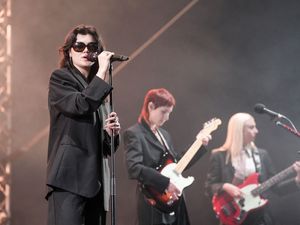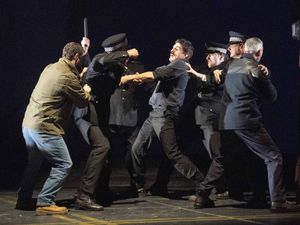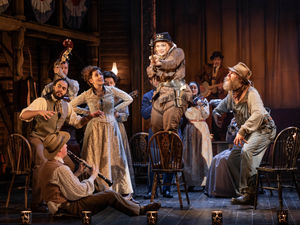What it's like to...Be in a band
It’s not all sex, drugs and rock and roll; a lot of the time it’s stress, money and not reaching your goals. Wanting to be in a band is all a part of growing up and discovering music.
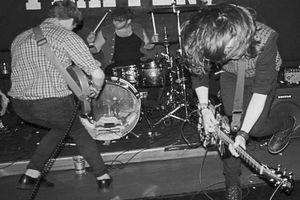
Some of us even go on to pick up an instrument, fumble around discovering chords and eventually take the first steps into assembling our friends and writing the world’s next favourite song – but is being in a band as glamorous as it seems?
Ripchord and ex-God Damn guitarist Dave Copson of Wolverhampton first got on stage in 1999 at the age of 14, and a lot has changed for bands since then: “The internet has progressed over the years. Back in the day there wasn’t many ways of getting your music heard other than selling CDs at your shows.
“These days people can hear everything you’ve ever created within a few clicks, which is great as it means you have people coming to your shows who know all your songs word perfect.
“It’s allowed bands to build up huge followings without the need of any record label or professional promotion. If you have good songs that people want to hear and the drive to get them heard then you’ll have success.”
The rise of the internet has changed the game for musicians forever, it has changed how they distribute their bands to the masses; but one thing remains the same – you must play gigs, and you must record.
Secondhand Story and Creepin’ Six multi-instrumentalist Elliot Sayce from Wolverhampton found one of the hardest times in his musical career revolved around recording his band’s music: “The most frustrating times are recording when you hear your own songs repeated hundreds of times and have to agree with four other people on the smallest details of a song that you might not like.
Money is a big issue for musicians, everyone dreams of their music being their living. . . But there are a lot of nights sleeping in a van and sharing a bag of chips between five people before then.
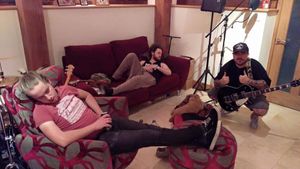
Elliot continues: “We made money for the band from learning blues covers everyone knew at first and playing in pubs.
“You don’t really make much money from merchandise, it’s more of a free advertisement for us when people wear it in public.
“We’re lucky that we can practice and record most of our music at the guitarist’s house so most of the money can be used as efficiently as possible. After a while of playing covers you develop a bit of a following and you can start playing your originals.
“We all have jobs besides the music so we don’t take very much money for ourselves, besides expenses for gigs, and the rest goes into a band fund.”
Dave adds: “Playing in a band is seriously not cheap, many times you end up out of pocket by hundreds, if not thousands of pounds. But once again you do what you have to do.”
If money doesn’t get in the way of being in a band, there are a plethora of things that can.
Former Creepin’ Six harmonica player Luke Blackham of Tipton looked back fondly on the world of music, and why he had to leave: “The birth of my daughter was the reason I had to leave Creepin’ Six. It was a hard decision, it was like breaking up with a girlfriend that you really like but you just can’t make it work. I may no longer be in a band but the memories are great and I left with some friends I may never have had without the experience”

Elliot adds: “Sometimes band members can find themselves having to choose between the band and a partner, my band personally are very lucky that our partners are very supportive and respect that we need a lot of time away from them to work on music. It can make or break a band.”
Despite the tough decisions, the money struggles and the hours of commitment one thing became clear to me speaking to these Midlands musicians – all of this pales in comparison to the feeling of playing live to a crowd of loving fans.
“It’s hard to find time for five grown men with full time jobs and many other commitments, including children, to have the same time off for practice and stuff, but the bad times are overshadowed when you’re on stage with your best friends getting cheered at by hundreds of people” Elliot summarises.
Dave concurs, adding that: “You can’t beat that feeling when your set has gone down an absolute storm somewhere and you’ve gained a load of new fans.
“Hearing a song you’ve made being played on Radio 1 or some other big station is brilliant as well. Once again the buzz you get hearing it is unbeatable. On a social level it’s great the amount of new friends you make along the way.
“Loads of people I’m friends with these days I met originally through playing gigs with them.”
Being in a band may not always be smashing up hotel rooms and partying with models, but it’s still an exhilarating and life-changing experience that many budding musicians chase – and it’s easy to see why after speaking to musicians themselves. I’m off to pick up my bass guitar and rise to the top!

